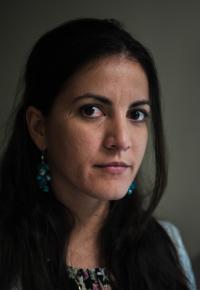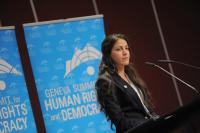We lived freely in one big prison

Download image
Rosa María Payá was born in 1989 in Havana, Cuba. She comes from a devout Catholic family. Her father Oswaldo Payá was one of the most prominent dissidents in Cuba. He fought to establish democracy in the country by non-violent means. Václav Havel and other people nominated him for the Nobel Peace Prize. In 2012 Oswaldo Payá died during a car accident under as-yet unexplained circumstances. Rosa María is convinced that he was murdered. Even as a student she became active in the dissent. She worked for the Christian Liberation Movement, she coordinated Cuba Decide, a project that promoted a nationwide referendum for free elections. She has spoken of oppression in Cuba at many international forums, including the UN Human Rights Council. Her mother and brothers received political asylum in the USA, Rosa María has retained her Cuban citizenship but lives mostly abroad.

